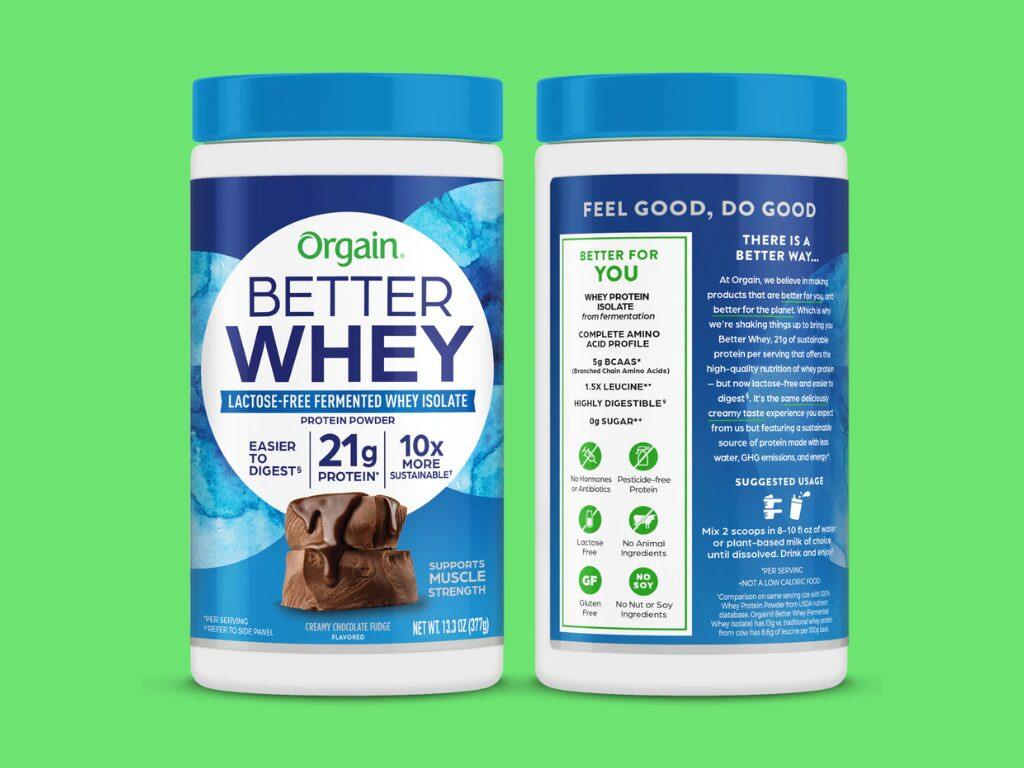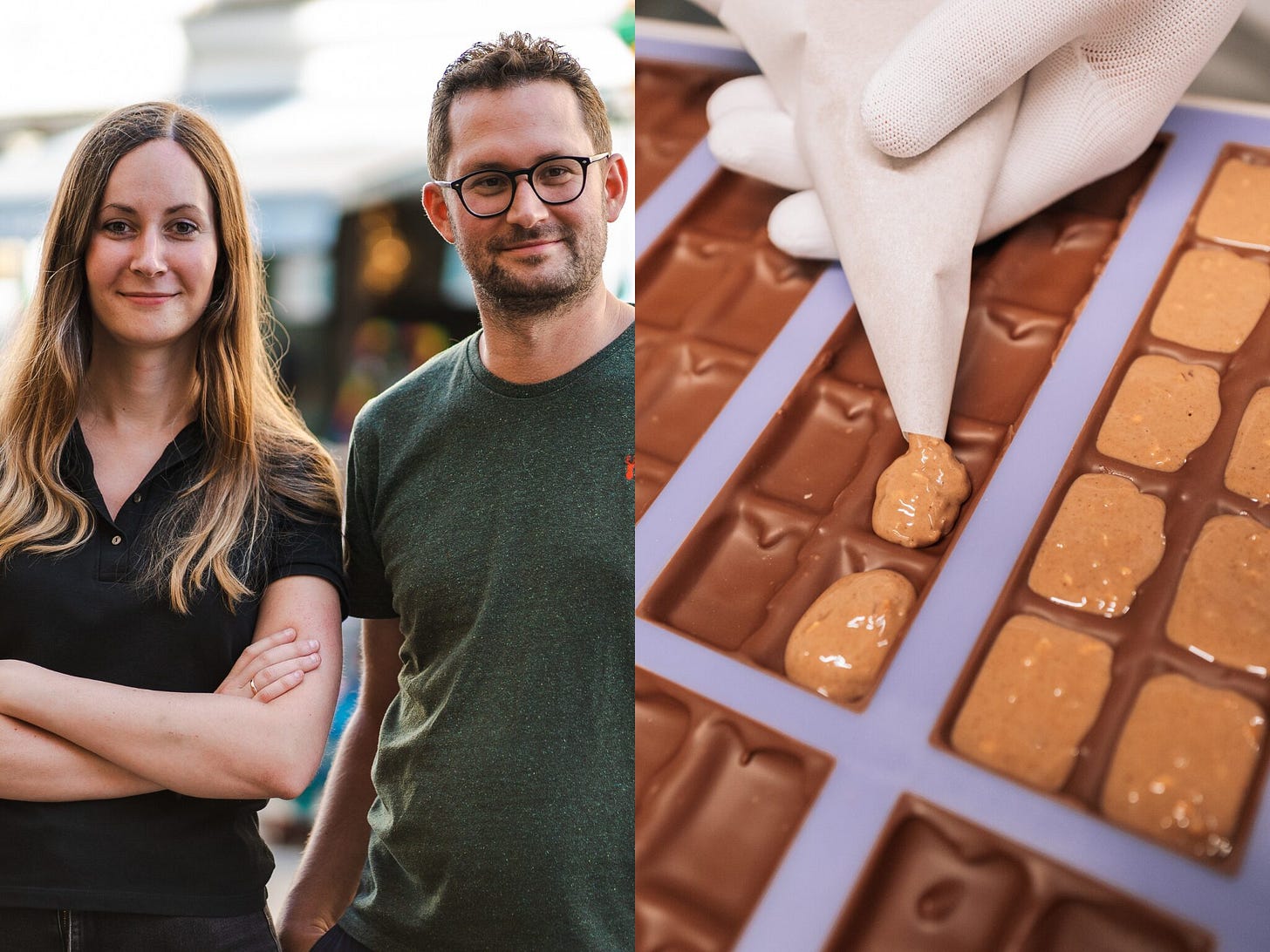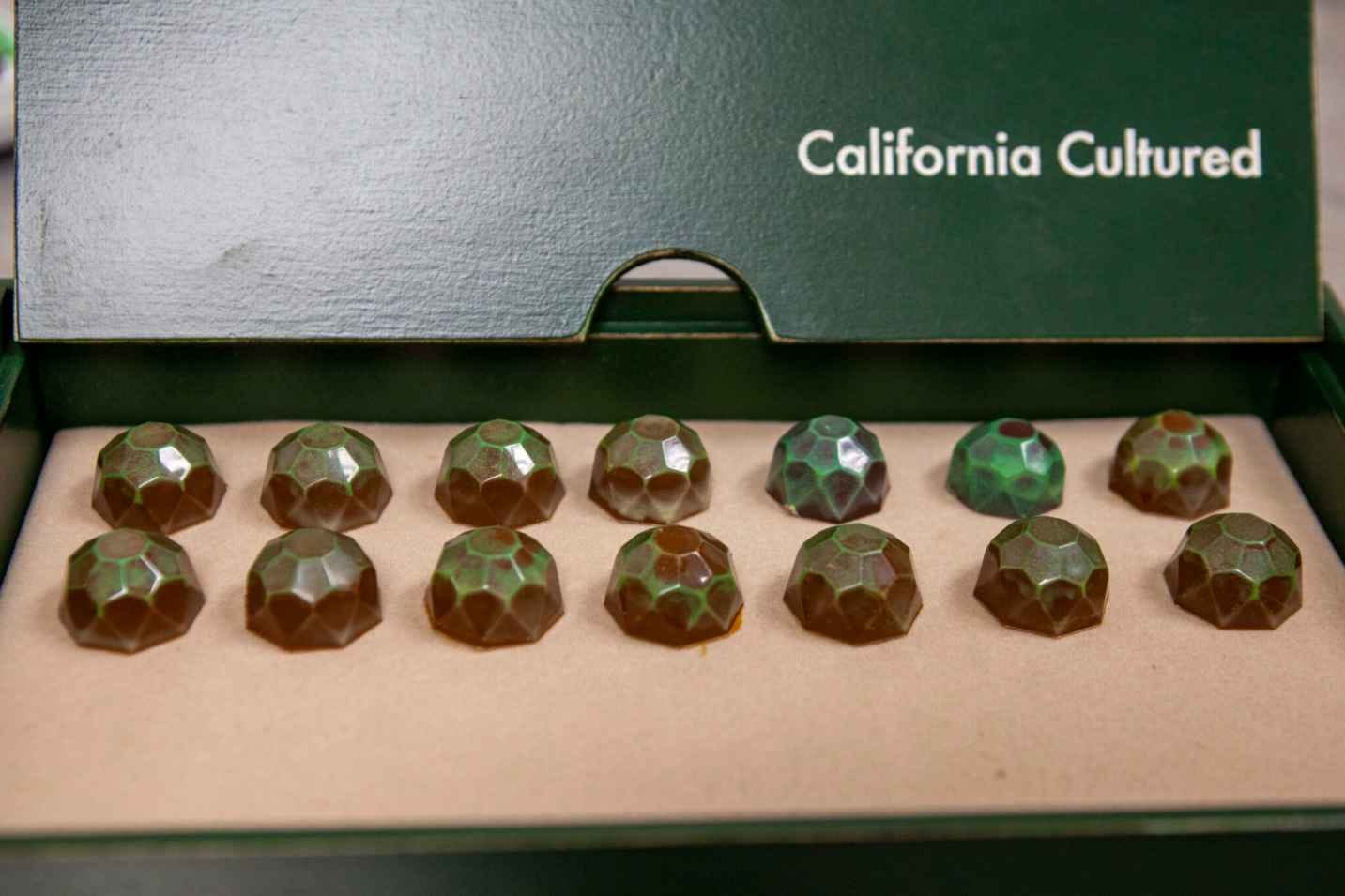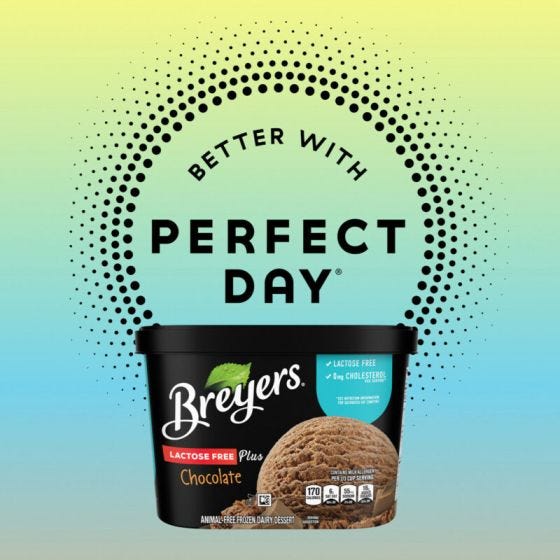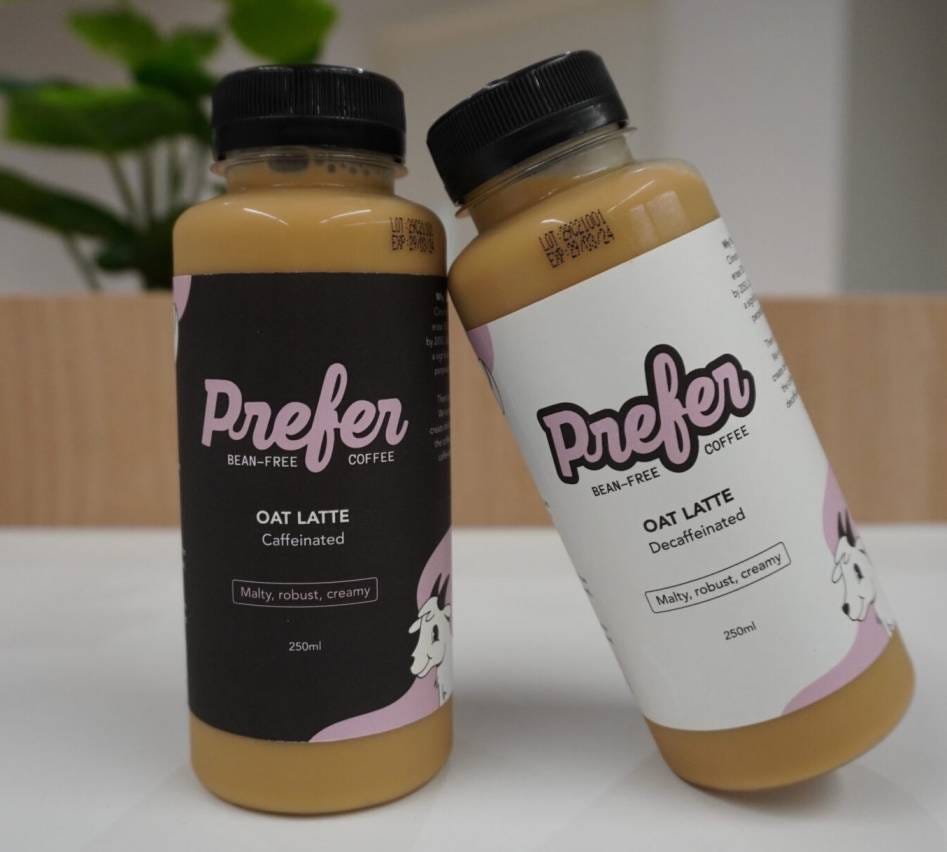10 Notable Developments in Fermentation-Based Food Innovation
Future Food Fermentat10n: February 2024
3 positive observations from February’s roundup:
✅ Big CPGs embrace animal-free whey
✅ Big commercial partnerships
✅ Going beyond alt ‘proteins’
Please note that this is a list, not a ranking.
💪🏾 Nestlé launched its first animal-free protein powder, with 21g of highly digestible protein per serving and 10x more sustainable
The Swiss multinational introduced its first precision fermentation dairy protein powder, an animal-free and lactose-free whey isolate product named Better Whey under the Orgain brand (Nestlé acquired a majority stake in 2022).
As Sonalie Figueiras shared, “According to the company, Better Whey Protein Powder is: lactose-free, animal-ingredient-free, highly digestible, 10x more sustainable than conventional whey, gluten-free, sugar-free, hormone-free, antibiotic-free, pesticide-free, and contains a complete amino acid profile.”
Nestlé’s introduction of Better Whey aligns with its commitment to reduce the carbon footprint of its dairy products. By using precision fermentation, the company offers more sustainable protein options and aims to comply with stricter environmental regulations.
🍼 Yali Bio created the ‘world's first’ breast milk fat from yeast, using precision fermentation to closely match the nutrition of human milk
This breakthrough aims to improve infant formulas by offering an essential component, OPO (Oleic-Palmitic-Oleic), which is vital for infants to absorb nutrients effectively.
The Californian startup's tech allows for the cost-effective production of high-quality structured fats, resembling breast milk fats. It offers a solution to the challenges and expenses associated with producing breast milk fat substitutes through enzymatic interesterification reactions.
Yali Bio’s work is supported by a $370,000 grant from the NIH’s Eunice Kennedy Shriver National Institute of Child Health and Human Development. The support reflects the potential long-term impact of the research on infant nutrition, considering that 130 million babies born annually are fed infant formula at some point, and some mothers face challenges with breastfeeding.
🍫 Fermentation tech startup Planet A Foods, the parent company of cocoa-free chocolate ChoViva, secured $15.4M in Series A funding
ChoViva is made from oats, sunflower seeds, and shea butter using a proprietary fermentation process, offering a sustainable and healthier chocolate alternative. The brand seeks to alleviate pressure on the cocoa supply chain and contribute to environmental conservation.
It has 30% less sugar, a significantly lower carbon footprint due to local sourcing and shorter supply chains, and aims to address the high emissions, deforestation, and ethical issues associated with traditional chocolate production. An independent LCA revealed that ChoViva's vegan version can save up to 90% in emissions compared to conventional chocolate.
The German startup is expanding its focus to include other fats and oils like palm. The company is in the process of obtaining regulatory approval for its precision-fermented ChoViva Butter, aiming to provide a sustainable, cost-effective, and locally sourced alternative to cocoa butter and other fats.
👨🍳 Algae Cooking Club introduced a chef-grade microalgae-based cooking oil with high sustainability credentials and health benefits
The oil has a high smoke point of 535°F/280°C, is rich in omega-9 fatty acids, and has significantly lower carbon emissions and water usage compared to cooking oils such as avocado, canola, and olive oil.
The product is championed by renowned three-Michelin-starred chef Daniel Humm, Algae Cooking Club's Culinary Officer. The oil is described as a light, neutral oil with a hint of a buttery note, and a rich, rounded, non-greasy mouthfeel.
The Delaware-based brand’s oil production process involves fermentation. Feeding on sugar, the microalgae grow in bioreactors, so the company doesn’t need to harvest algae from natural habitats. In just 3 days, oil makes up 80% of the algae’s content by weight.
🍫 California Cultured formed a 10-year commercial partnership with Japanese chocolate giant Meiji for cell-based cocoa products
The collaboration marks the ‘first time’ cell-cultured chocolate will enter the market globally. It addresses the growing supply gap in the cocoa industry due to challenges such as deforestation, climate change, and human rights issues.
The West Sacramento-based food tech startup's production process involves harvesting cells from cocoa plants and growing them in fermentation tanks. This method significantly reduces GHG emissions and offers a sustainable alternative to traditional cocoa production.
The partnership is targeting a late 2024 launch for products in the nutraceutical, chocolate, and better-for-you snack markets. The pricing will be “very competitive with high-value nutritional products on the market” in the categories mentioned.
🍄 ENOUGH extends its agreement with Cargill, including a commercial deal for ABUNDA mycoprotein and a minority holding in the company
Cargill invested an undisclosed sum in ENOUGH, adding to the $43.6 million raised in ENOUGH's Series C funding round, securing a minority single-digit holding. The collaboration will allow ENOUGH to scale more quickly in Europe and beyond by benefiting from Cargill’s global presence and feedstock tech expertise.
ENOUGH uses biomass fermentation to produce ABUNDA. ABUNDA provides all 9 essential amino acids and dietary fiber, featuring a neutral taste for versatility in various food applications.
ENOUGH's protein production facility initially can produce 10,000 tonnes of protein each year, with plans to double this output by 2025. By 2033, the company aims to have produced more than a million tonnes in total.
🍦 Unilever partnered with Perfect Day to introduce an ‘animal-free dairy’ frozen dessert under the Breyers brand
This is the first time a multinational ice cream and frozen dessert brand has sold a product using Perfect Day’s whey protein made from precision fermentation. It’s available all over the US at a manufacturer's suggested retail price of $4 and $8 for a 48-ounce tub.
Major CPG companies like Mars, Nestlé, and General Mills will likely closely watch the performance of these products. They have tried 'animal-free dairy' brands before with varying success.
'Animal-free' dairy typically refers to dairy products made with real dairy proteins like whey and casein proteins but without cows. Instead, they use genetically engineered microbes or crops. These provide sustainable and ethical alternatives while still delivering the nutrition and functionality of real dairy.
🤝 Döhler partners with Superbrewed Food to produce high-protein postbiotic ingredients from biomass fermentation
Superbrewed Food's non-GMO bacterial biomass has a high protein content (85%), a PDCAAS (protein digestibility) score of 0.91 (which ranks higher than most plant proteins), and rich levels of B vitamins and minerals like iron and zinc.
Superbrewed's ingredients are said to have a neutral taste and a natural white colour. They possess excellent pH and temperature stability, along with good emulsification properties. These qualities make them suitable for a wide range of products, including dairy alternatives, protein bars, and baked goods.
The partnership allows Superbrewed to focus on bringing products to market quickly, pausing plans to retrofit an ethanol plant in Minnesota for large-scale anaerobic fermentation.
☕️ Prefer raised $2M to scale up production and Asia expansion for its fermentation-derived bean-less coffee
The Singaporean startup produces bean-less coffee using food industry byproducts (surplus bread, tofu pulp, and spent brewer's grain). The ingredients undergo a 3-step process involving fermentation with food-grade microbes, roasting, and grinding. This replicates real coffee's essential aroma molecules.
Nearly 60% of all coffee species are endangered. Arable land for coffee is expected to halve by 2080. Prefer's tech offers a solution by producing coffee alternatives that reduce environmental impact.
The products are already gaining traction in Singapore, with products available in 12 locations. The company plans to expand into the Philippines and focus on the APAC market until 2025.
🧀 New Culture has obtained the ‘world's first’ self-affirmed GRAS status for animal-free casein
The San Francisco startup is the only precision-fermented casein producer authorised to sell casein as a food ingredient in the US. The company plans to notify the FDA of its self-GRAS (Generally Recognized as Safe) determination soon.
New Culture's mozzarella is designed to mimic conventional cheese in melting, stretching, and browning, and is made from powdered casein, water, fat, sugar, vitamins, and minerals.
The company's animal-free casein can produce cheese for 25,000 pizzas per batch. They plan to scale up and reduce manufacturing costs by 80% to reach price parity with conventional mozzarella in 3 years.
Check out January’s edition if you are curious:
✉️ Hungry for more updates on biotech shaping the future of food? Devour the free subscription and get weekly curated updates!
Know anyone else who would like this?


